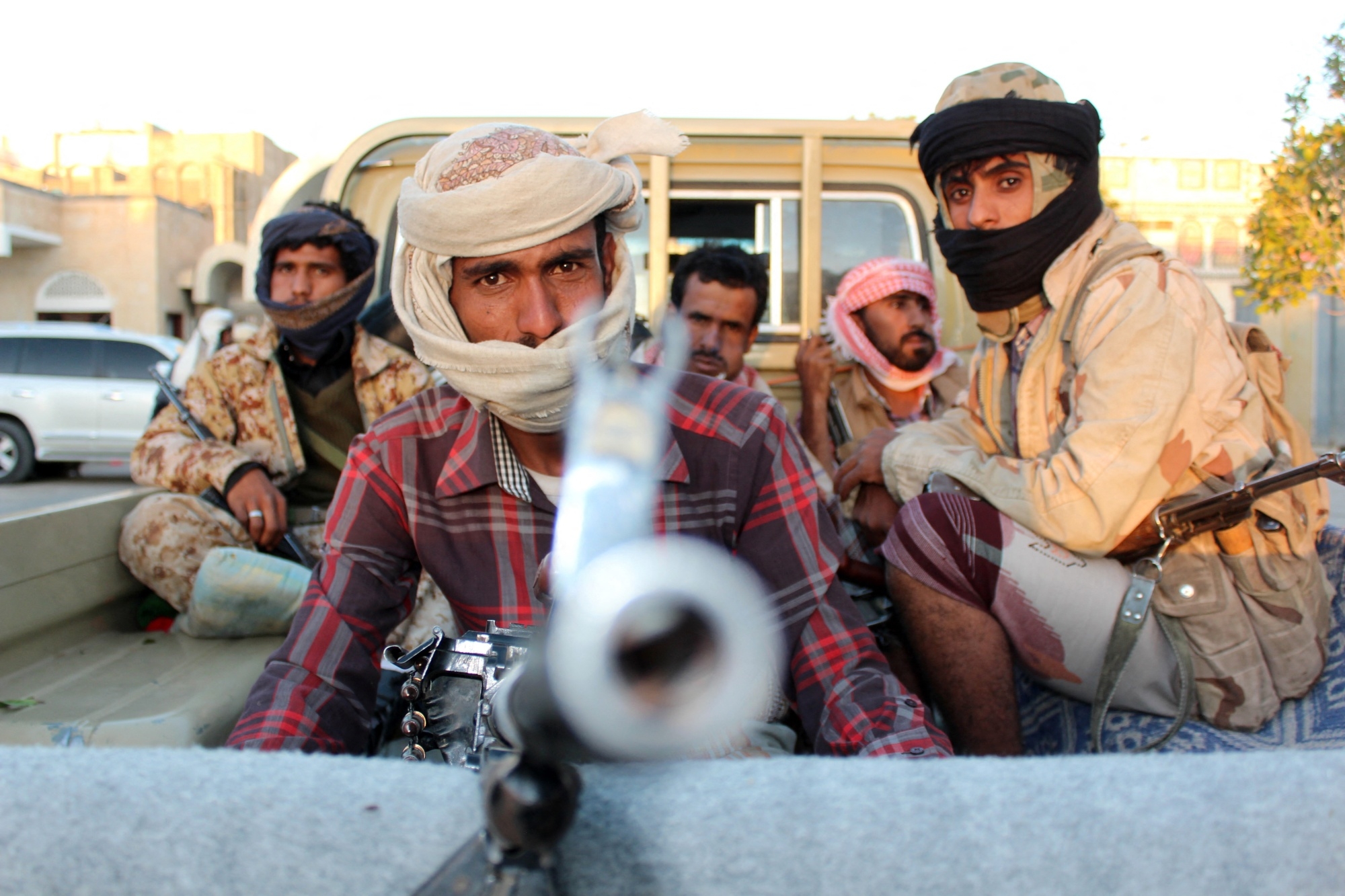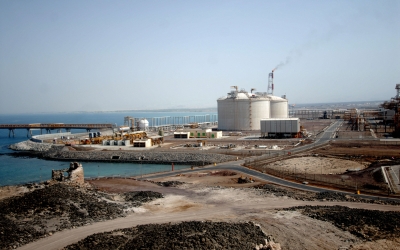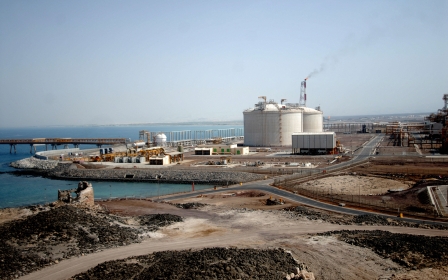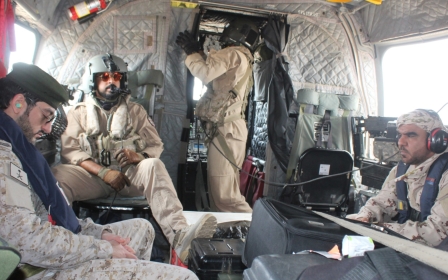Yemen war: Tribesmen intercept UAE forces in Shabwah

Emirati forces used to move freely between the Balhaf seaport and al-Alam military camp in Ataq, the capital of Yemen’s Shabwah governorate. But on Monday, tribal fighters intercepted a United Arab Emirates military convoy as it headed from the seaport to Ataq, around 60km away, demanding they deliver the killers of their relatives.
In January 2019, UAE-backed Shabwah Elite forces, covered by Emirati helicopters, attacked the al-Hajr area in Shabwah in an attempt to arrest two men from al-Mihdhar tribe. Women and children were among the 11 people killed in the operation.
New MEE newsletter: Jerusalem Dispatch
Sign up to get the latest insights and analysis on Israel-Palestine, alongside Turkey Unpacked and other MEE newsletters
The UAE later admitted to its wrongful killing of the civilians. Saudi mediation led to an agreement stipulating that Abu Dhabi would compensate the families of the victims.
The families, however, say not only has the UAE not adhered to the agreement, the Shabwah Elite forces imposed a four-month siege on the area before pro-government forces recaptured the province in August 2019.
In early 2021, the families set up tents in front of al-Alam military camp, but their demands for compensation and justice were once again ignored.
“The UAE attacked us with its warplanes and militias while we were inside our homes. The Emirates killed people from Shabwah and besieged men, women and children. The whole province rejects that,” Ahmed al-Mihdhar, the spokesperson for the victims’ families, told Middle East Eye.
“We demand that the UAE forces deliver the killers and compensate the victims' families, which we have been demanding since 2019.”
Possible escalation
On Monday, al-Mihdhar tribe held 15 Emirati and Yemeni fighters for several hours - in an interception that the spokesperson said was peaceful - only to release them after Saudi mediation.
A journalist in Shabwah told MEE on condition of anonymity that the victims' families had not dared to demand any compensation until pro-government forces recaptured the province from the UAE-backed fighters - who are now present at both the Balhaf port and al-Alam military camp.
"I think that al-Mihdhar tribe was illegally attacked and it is a shame for Yemenis to attack civilians inside their homes, but the Emirati forces and their militias did," he said.
'UAE forces used to move freely in Shabwah, but yesterday it was al-Mihdhar tribe that did'
- Yemeni journalist
"That needs to be resolved through the tribal traditions by letting the victims' families judge the killers themselves, but the Emirati forces don't understand such things. They only understand the language of force."
The journalist said that compensation could be the solution, but if Abu Dhabi did not take steps to resolve the issue, tribal leaders could escalate the situation.
"Peaceful protests by tribesmen have led nowhere, and yesterday, for the first time in Shabwah, we saw them intercept an Emirati military convoy," he added.
"UAE forces used to move freely in Shabwah, but yesterday it was al-Mihdhar tribe that did."
Emirati presence
Last year, the UAE announced it had ended its military involvement in Yemen, but many experts believe that Abu Dhabi remains deeply involved in the country.
"The UAE says that it has withdrawn from Yemen and no longer has a presence on Yemeni territory, but the photos circulating today of Emirati vehicles that were intercepted by tribal gunmen in Shabwah prove otherwise," pro-government Yemeni journalist Sameer al-Namri wrote on Monday.
"The Emirati forces are present in the provinces of Shabwah, Hadramout, Socotra, Aden, the western coast and Bab al-Mandab," he added.
Shabwah's governor, Mohammed Saleh bin Adyo, last month accused the Emiratis of hijacking Balhaf, a gas-rich area, and called on Abu Dhabi to retreat from the port. On 30 August, pro-government forces removed checkpoints they had set up around the seaport, following Saudi mediation.
Middle East Eye delivers independent and unrivalled coverage and analysis of the Middle East, North Africa and beyond. To learn more about republishing this content and the associated fees, please fill out this form. More about MEE can be found here.





